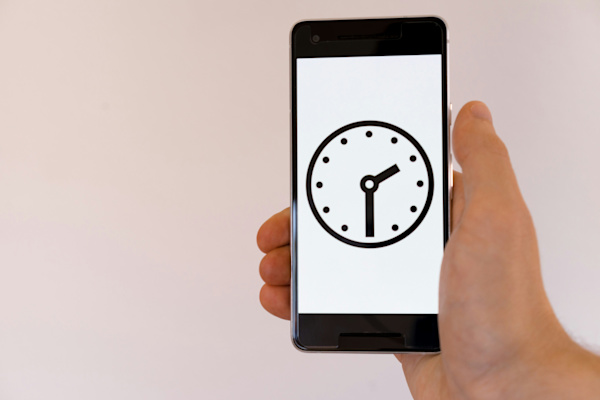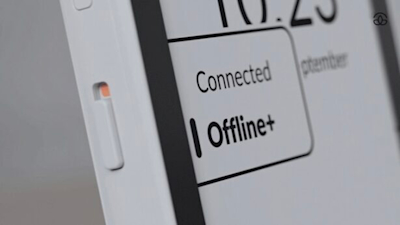
Behind the screen: How much screen time is too much for adults
Too much screen time?
You're probably reading this article on your smartphone or tablet, because, let's face it, we live in an era where, it seems, our digital devices have become extensions of our bodies.
Screens are everywhere. They're in our pockets, on our desks, in our purses, and now, even on our wrists. And if Apple gets its way, we will soon have a screen affixed to our face, so we can browse the internet without needing to hold our phone so close to our face. Yikes! Is that where we are heading? Is this the life we want?
That's why the dialogue about screen time has never been more pertinent. While the conversation around screen time often focuses on children and teens (rightfully so), the digital habits of adults are not widely talked about. Yet, it's an area that should also be of interest.
So, let’s examine the complex relationship between adults and their screens, while at the same time advocating for a more mindful approach to technology use as championed by Mudita.
The Reality of Adult Screen Time
It's no secret that the contemporary adult goes about their day steeped in digital interactions. We just move from one screen to another. From the glow of a morning alarm on the smartphone to the last email check or social media scroll before bed, screens are our constant companions. Recent studies have thrown startling figures into the mix, revealing that adults in the United States clock in an average of 11 hours of screen time per day, consuming 15.5 hours of media per day through various devices. This number surged to 19 hours during the peak of the Covid-19 pandemic lockdowns. [1][2]
If the above numbers are not sobering enough, let’s look at it another way: According to published research, a study in the UK and US discovered the average U.S. adult will spend the equivalent of 44 years of their life staring at screens. [3][4]
These staggering statistics begs the question: How much is too much?
At the heart of this inquiry is the absence of a one-size-fits-all answer. Unlike the clear guidelines available for children, the threshold for healthy adult screen time is murkier. However, emerging research suggests that excessive screen time—marked by over six hours of daily use—can be the harbinger of mental and physical health woes, from depression to diminished well-being.
The Dark Side of Digital Excess
The effects of excessive screen time are not just limited to statistics. These effects can also have a real impact on your health and well-being.
Insomnia, eye strain, and a sedentary lifestyle are just the tip of the iceberg. Deeper still, the psychological imprint of addictive behaviors towards smartphones and social media cannot be overlooked, with many adults experiencing withdrawal symptoms in the absence of their digital devices. Ever heard of nomophobia? [5][6]
READ: Nomophobia - fear of being without phone
Furthermore, the impact on physical health is undeniable, with extended screen use contributing to musculoskeletal pain and an increased risk of obesity. [7][8]
Finding the Sweet Spot
It's important to remember that when navigating the digital terrain, moderation is key. We live in a world full of technology and, unless our work is in hands-on work professions, our jobs and school often tie us to screens. However, it’s important to find a balance between our digital and non-digital lives.
Experts advocate for limiting recreational screen time to less than two hours per day, encouraging adults to replace digital consumption with physical activity.[9]
This shift not only addresses the direct health benefits of reduced screen time, but at the same time fosters a more engaged, mindful approach to technology, a philosophy deeply ingrained in Mudita's ethos.
Strategies for Mindful Tech Use
In our technology-obsessed world, where our lives revolve around screens, embracing a lifestyle with minimal screen time seems like a far-off dream for many of us.
However, it's not just about work and school; our chats, hobbies, entertainment, and even hangouts have become virtual.
At Mudita, we've always believed in finding joy and balance amidst our screen-filled lives, proving that a harmonious relationship with our digital companions is entirely possible.
Small, actionable steps can really lead to significant lifestyle shifts, for the better, in the quest to curb digital consumption.
For example, turning off notifications, setting strict boundaries on device use, and embracing alternative morning and evening routines which don't include screens, are all effective strategies.
Moreover, using tools that align with digital minimalism, such as Mudita's mindful alarm clocks, Mudita Bell and Mudita Harmony, can help you cultivate a more conscious relationship with technology.
Mudita Harmony & Mudita Bell
Mudita & Creating a Mindful Tech Environment
The path to digital wellness is not a solitary journey. By fostering an environment that values quality over quantity in digital engagement, individuals can reclaim their time and mental space.
As Mudita, we stand at the forefront of this movement, offering products that embody the principles of digital minimalism, and encouraging a lifestyle where technology serves us, without overwhelming us.
We believe when we embrace the principles of digital minimalism, technology can enhance our lives without dictating them.
Although it might be hard to believe, it is possible to live in a world where we can enjoy the benefits of connectivity without succumbing to its pitfalls.
By fostering a healthier relationship with our devices, we pave the way for a future where digital wellness is not just an ideal, but a lived reality.
Mudita invites you to join this journey, to discover the balance and peace that comes with mindful tech use, and to experience firsthand the profound impact of digital minimalism on your well-being.
Related stories

Mindful tech use & the key to a healthier, happier brain
Overstimulation from screens is reshaping your brain, it harder to focus & stress more. Learn practical ways to reset, regain clarity & use tech more mindfully.

What is a digital detox?
Discover what a digital detox is, why it matters, and how unplugging can boost sleep, reduce stress, and help you reconnect with what really matters.

What Is Sleepmaxxing? The Trend for Your Best Night’s Sleep
Discover Sleepmaxxing, the viral trend elevating sleep into a self-care ritual. Optimize rest with sleep hygiene, tech-free zones, and mindful alarm clocks.
If you'd like to receive the best stories from our blog, keep up to date with our progress and get notified about our product releases and special discounts.